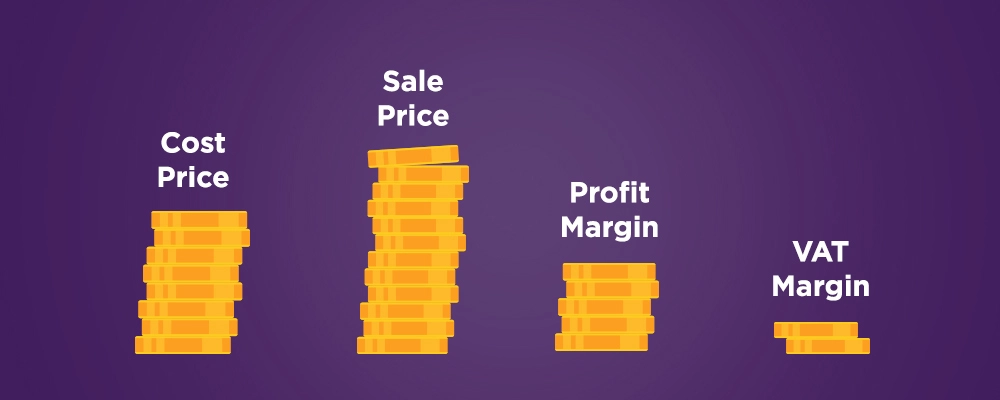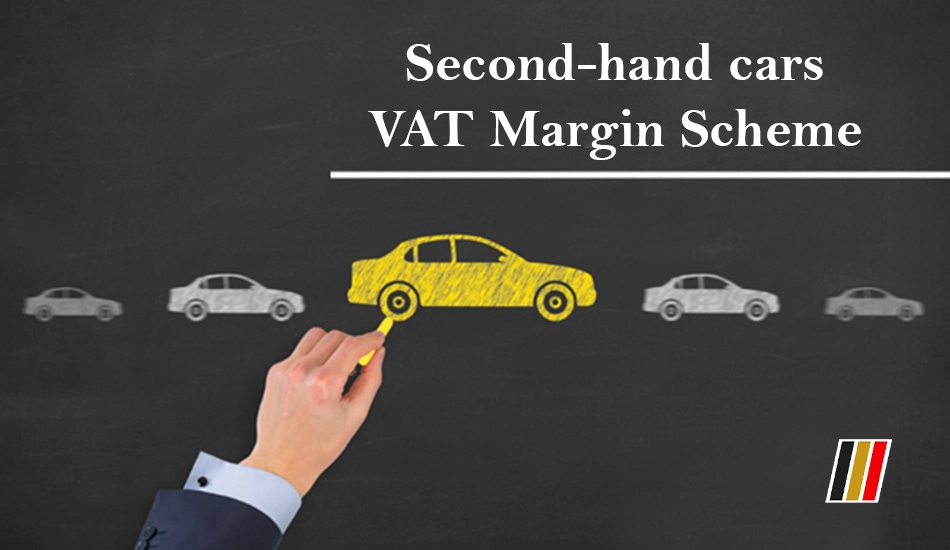Understanding the VAT on Second-Hand Cars in 2025
Understanding VAT (Value Added Tax) can be daunting for consumers and dealers. However, new rules, calculations, and the implementation of VAT on
second-hand cars in 2025 are changing this. Whether you are a secondhand car buyer or dealer, you must stay updated with these VAT trends or changes. In 2025, VAT on secondhand cars will affect everything from secondhand car prices to legal compliance for dealers.
Before delving into the changes in VAT on second-hand cars, you must understand the VAT scheme. So, let’s start by explaining the VAT scheme for used cars:
What is the VAT Margin Scheme for Second Hand Cars?
The VAT margin scheme specifies calculating the value-added tax on used cars. However, this margin scheme is implemented not only on second-hand vehicles but also on all used goods.
The VAT margin scheme only applies to VAT-registered dealerships and used car retailers. Under this scheme, VAT is charged according to the profit margin between the purchase price of the used car and the selling price.
Upcoming Changes in VAT on Second Hand Cars in 2025
Starting in 2025, all VAT-registered second-hand car dealers must follow strict VAT rules. They must calculate the selling prices of used cars strictly according to the VAT margin scheme’s regulations.
The UK government will introduce modern laws and regulations to ensure a fair measurement of taxation on the sale of used cars. Second Hand, car dealers must follow the VAT margin scheme through reporting and processing.
Dealers who fail to do so will face strict penalties for non-compliance. These changes will also affect the international export of used cars. The upcoming changes in VAT on second-hand cars might streamline the selling process of used cars. Yet, it might also lead to a few complications and challenges for used car dealerships.
How Will the VAT Margin Scheme Work in 2025?
The VAT margin scheme is an excellent point of relief for used car sellers or dealerships. According to this update, VAT will be calculated only according to the profit margin. The VAT margin scheme will remain in 2025.
However, dealers might need to provide more appropriate calculations to minimise the VAT margin risks.
According to the VAT margin scheme, if you purchase a car for £9,000 and sell it for £10,000, you must pay VAT only on £1000, which is your margin.
The upcoming VAT on used cars regulations will include proper documentation and penalty filings if the dealership disobeys the scheme.
By keeping the appropriate track record of VAT margin, the dealership can avoid unnecessary penalties.
VAT Reporting and Compliances for Second Hand Car Dealers
As discussed earlier, 2025 will bring prominent changes in the VAT margin scheme for all used car dealers in the UK. Thus, Second Hand car dealers must maintain a proper record of each car’s purchase, sale receipts, and other details.
The sale slips will help dealers calculate the clear profit margin on each used car sale.
The UK government has also introduced an automated VAT reporting system for car dealers’ convenience.
Non-compliance with VAT margin rules might lead dealers to severe penalties.
In the future, car dealers might also need to invest in proper VAT margin-calculating tools or software to keep track of each sale. This way, second-hand car dealers can avoid costly mistakes and penalties.
Impacts of VAT on Secondhand Car Buyers in 2025
Because the VAT margin scheme will be strictly implemented on used car dealers in 2025, the prices of used cars are expected to rise slightly. This is because of the VAT adjustments for secondhand car selling. But, there are no precise predictions of the price rise of secondhand cars across borders.
Like sellers, car buyers must also know about the VAT margin scheme and how it will affect their final car-buying experience.
Besides this, used car buyers can ask about implementing and processing the VAT margin scheme. This will ensure they are paying enough.
With a basic knowledge of the VAT margin scheme, used car buyers can make a beneficial decision when buying a used car in the UK.
VAT on Second Hand Cars in 2025: Special Exemptions and Rules
VAT is not implemented on all used cars in the UK. There are also a few exemptions and flexible VAT rules for vehicles older than 30 years. Besides this, the cars sold under specified finance agreements might have different VAT rules and regulations.
Dealers need to explore the VAT terms and conditions to establish the proper VAT ratio for the correct type of car according to its age and condition.
Secondhand car dealers can also look for vehicles exempt from VAT to save a few ££.
Prepare for the Future with Trade LMS
Trade LMS is a leading London, UK platform for selling and buying secondhand cars. You can also contact our support team to learn about the listed used cars under VAT-registered policies and regulations.
As 2025 approaches in three months, be ready for the new implications of the VAT margin scheme with Trade LMS!
The VAT rules are continuously changing. However, whether you are a buyer or a dealer, you can embrace the future of VAT on secondhand cars by staying proactive and navigating the changes without difficulty.

